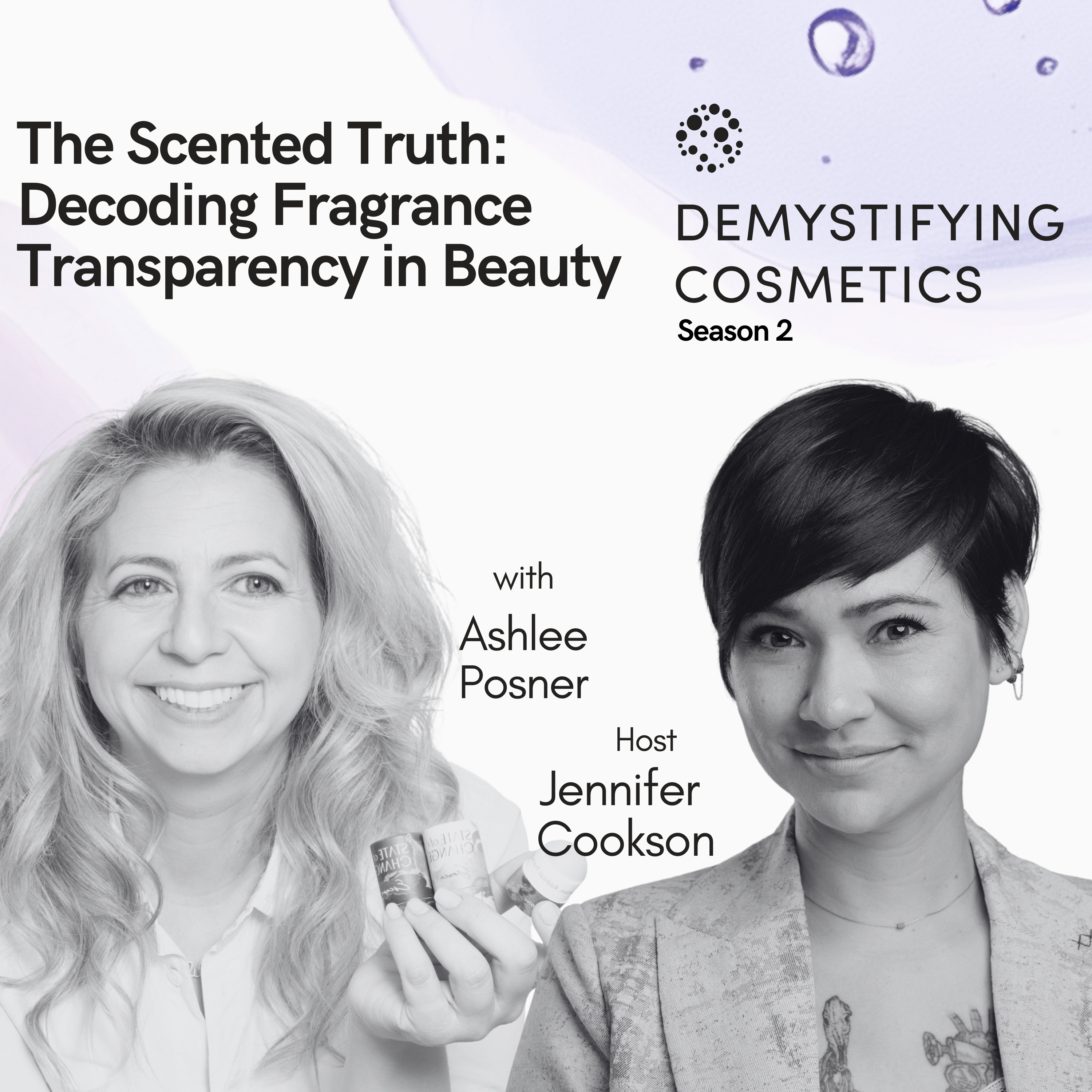The Scented Truth: Decoding Fragrance Transparency in Beauty

Today’s episode dives into the fragrant but often foggy world of fragrance in cosmetics. Joining us is Ashlee Posner, co-founder of Lucent Labs, a fragrance and formulation partner helping brands navigate the space between creativity, compliance, and consumer trust.Together, we explore the tension between artistry and regulation in scent:Why fragrance is often called a “black box” on ingredient labelsWhat brands don’t have to tell you—and whyWhat’s really hiding under the word “fragrance”Whether “cleanwashing” is the new greenwashingWho’s actually responsible for fragrance safety—and what can fall through the cracksAnd what Ashlee thinks of IFRA standards and how they shape the industryWhether you’re a brand founder, product formulator, or just a curious consumer who wants more transparency, this episode will open your eyes—and your nose—to what’s really going on behind the scent.Takeaways:• Fragrance Ingredients Are Completely Hidden from Everyone: The word "fragrance" on any product label can represent 50-300 ingredients that remain undisclosed not just to consumers, but also to the brands using them and even chemists working on projects. This information never leaves the fragrance house, creating zero accountability in a system protected by trade secret laws that made sense 100 years ago but are completely outdated today.• The Fragrance Industry Operates as a Controlled Monopoly: Only 4-6 very large businesses control the entire fragrance supply chain, owning both the formulations and the raw materials. This creates a system where these companies have minimal regulation, can lock in customers without transparency, and have no incentive to change because the current model benefits them financially while leaving brands and consumers in the dark.• Natural Doesn't Equal Safe in Fragrance: Many consumers and brands assume natural fragrance ingredients are automatically safer than synthetic ones, but this isn't necessarily true. Natural essential oils can contain carcinogens, endocrine disruptors, and allergens. The key is evaluating each ingredient based on scientific safety data rather than making assumptions based on whether it's natural or synthetic.• Traditional Fragrance Development Is Inefficient and Wasteful: The lack of transparency creates massive inefficiencies where chemists spend months developing formulations only to discover compatibility issues when fragrance is added last. Without knowing what's in the fragrance, they're forced to solve "algebra problems" or use less fragrance, ultimately making inferior products rather than addressing the root compatibility issues.• Transparency Enables Better Products and Faster Development: When fragrance partners share ingredient information upfront, brands can make informed decisions, avoid compatibility issues, get third-party certifications, and develop products faster. Partnership and early collaboration between fragrance developers and formulators leads to better outcomes than the traditional secretive approach.